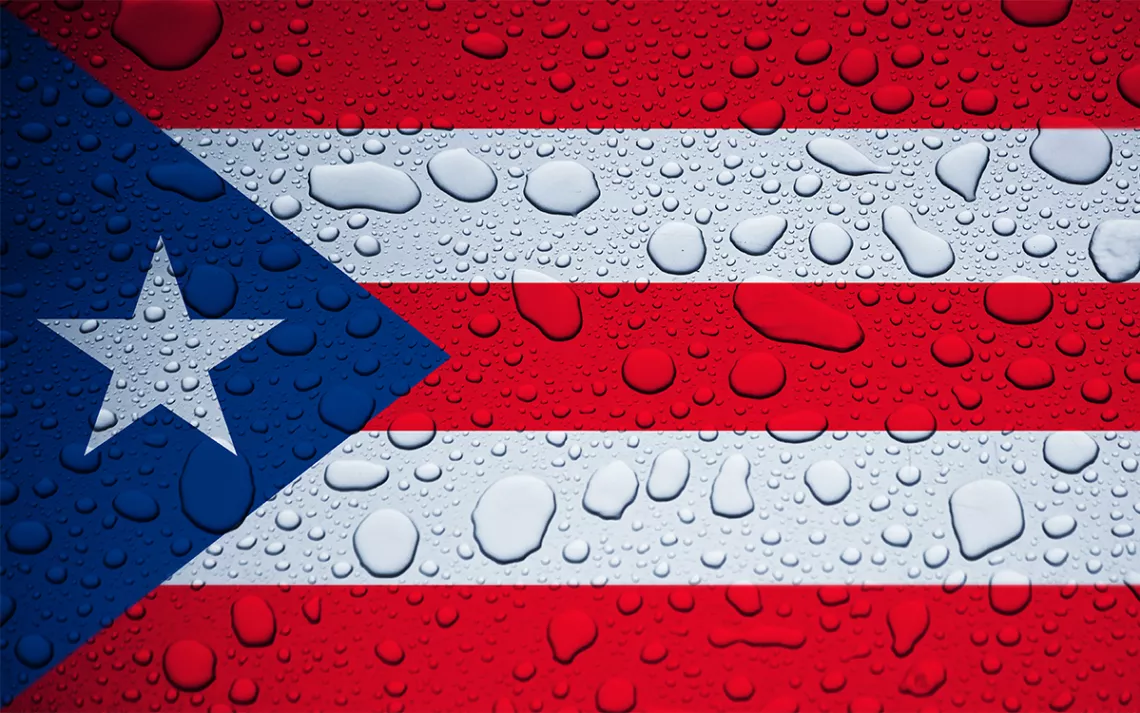One Year Later, Puerto Rico Is Not Ready for Another Hurricane
But Puerto Ricans have the solutions for rebuilding

Photo by Sergio Lacueva/iStock
On September 20, the world will remember that Puerto Rico exists again.
That day will mark the year since our island was struck by Hurricane Maria. All over the United States, people will be marching to remember the thousands of lives lost to preventable, senseless deaths in the hurricane. This time last year, we were planning a big march in San Juan to draw attention to the impacts of climate change. But we had to cancel because a hurricane driven by climate change was ravaging the island. I’ve got my fingers crossed that won’t happen again this year.
On the 22nd, we’ll march in San Juan, in Washington, D.C., and in Florida, where so many Boricuas have been driven by displacement. We will march and hope that the world hears our message, because we have a hard truth to share: Puerto Rico is merely one of the first communities to experience so many deaths and so much hardship due to the impacts of climate change. We will not be the last.
In the year that has passed, Puerto Rico has accomplished incredible things. Rather than simply rebuild and recover, we have worked to build something better than what we had before. Our electric grid was unreliable and polluting even before the hurricane—rather than simply patch it back together, Sierra Club de Puerto Rico is advocating to build a distributed network of affordable, reliable clean energy.
We’ve also worked to build a movement that is stronger than ever before. With the support of the national Sierra Club, we raised over $1.5 million from members all over the country to support communities on the island as we recovered. So far, with some of those funds, we have been able to offer over $800,000 in micro-grants to community organizations on the island to support their work. With these investments, we are building capacity in social and environmental justice movements on the island that will pay off over the long term.
Working with our partners, we have delivered over 10,000 solar lanterns and nearly 500 water filters. That work continues; we want to be sure that when the next hurricane comes, people are better prepared. Neither our local government nor our federal representatives have done nearly enough to prepare Puerto Rico to make it safely through our next big hurricane, so we are stepping in to do it ourselves.
One year later and we’ve accomplished so much. One year later and we’re nowhere near prepared for the next hurricane.
In this contradiction lies the truth: Puerto Ricans have the solutions to rebuild our island and prepare for the next disaster, but we lack control over our own destiny. As a “territory” of the U.S. government, Puerto Rico has always been subject to control and exploitation by colonizers. But the stakes are higher now for Puerto Rico than they have been in modern history, with disaster capitalists trying to sell off our public lands, privatize our public electric utility, and install polluting new gas and oil power plants.
Without a reliable clean energy grid, Puerto Rico is not safe. Every day, thousands of people on the island lose access to power as our unreliable, decrepit grid flickers on and off. Imagine what will happen during the next hurricane. Just like when Maria and Irma hit, our hospitals will go dark and vulnerable people will die for lack of access to basic health care like oxygen and dialysis. I write this from San Juan, where we just regained power after an outage from Tropical Storm Isaac. But hurricane season is just beginning. Now, and perhaps forever, our lives depend upon an electric grid more fragile and unreliable than any other in the United States. Until Puerto Rico builds a reliable, distributed clean energy grid that actually works for our mountainous island, millions of lives will be at risk every hurricane season.
This September 22, Boricuas will remember what we lost. But we will also demand a better future for our island, and for all communities impacted by climate change.
 The Magazine of The Sierra Club
The Magazine of The Sierra Club



